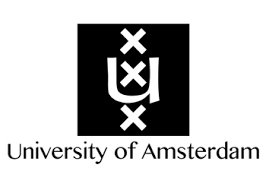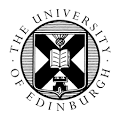
Study in Europe
Europe, with its sunny beaches, energetic cities, and endless possibilities, invites you to set off on a life-changing scholastic journey. This is your one-stop resource for navigating the fascinating world of education in this vibrant nation.
Your Guide to Studying in Europe
Key Notes About Europe
Master’s Eligibility
Most master’s programs demand a bachelor’s degree with a strong GPA. However, particular criteria could differ based on the program and university.
Education System
Europe has a top-notch educational system, and its universities are frequently ranked among the best in the world. Australia has a wide range of academic quality, from cutting-edge universities like University of Amsterdam, University of Cambridge, etc…
1. Academic Structure and the Bologna Process
Europe’s higher education system is standardized under the Bologna Process, which ensures compatibility and recognition of degrees across nearly all European countries within the European Higher Education Area (EHEA). Here’s how it impacts master’s programs:
- Duration: Most master’s degrees take 1–2 years to complete, corresponding to 60–120 European Credit Transfer and Accumulation System (ECTS) credits. Some programs, like those in Austria or Belgium, may align with longer traditional structures (e.g., 4–5 years for certain fields before Bologna reforms).
- Structure: Programs typically involve coursework, research, internships, and a thesis. Some fields, like medicine, dentistry, or veterinary medicine, may follow a different structure, with longer integrated programs (5–6 years) leading to degrees like “Dr. med.”
- Types of Programs:
- Research-oriented master’s: Focus on independent study and are ideal for those aiming for a PhD or academic career (e.g., MSc in European Studies at Maastricht University).
- Professional master’s: Emphasize practical skills for industry roles (e.g., MSc in Data Analytics or Engineering Management).
- Language of Instruction: Many programs are offered in English, especially in countries like the Netherlands, Germany, Sweden, and Ireland, making them accessible to international students. Over 150 English-taught master’s programs are available at institutions like the University of Groningen.
2. Popular Fields of Study
Europe offers a wide range of master’s programs across disciplines. Based on current trends and demand, the following fields are particularly prominent:
- Data Science and Analytics: With 142 master’s programs in Europe, these degrees focus on skills like data processing, AI, and business intelligence. Programs like the MSc in Business Analytics at Swansea University or the top-ranked Data Analytics program in Western Europe (per Ed universal) are highly sought after.
- Engineering and Technology: Programs like MSc Engineering Management at Cranfield University cater to science and technology graduates aiming for management roles.
- Business and Management: Europe hosts prestigious business schools like HEC Liège (EQUIS-accredited) and SDA Bocconi. Programs like the MSc in Finance at ISEG, ranked #31 globally by the Financial Times, include unique experiences like field trips to the European Central Bank.
- European and International Studies: Interdisciplinary programs like the MSc in European Studies at Maastricht University combine political science, history, and sociology, preparing students for careers in diplomacy, NGOs, or policy analysis.
- Sustainability and Environmental Studies: Programs focusing on sustainable finance or governance are growing, reflecting global demand for expertise in climate change and policy.
- Translation and Humanities: Degrees like the MA in Translation Studies at Dublin City University, part of the European Masters in Translation (EMT) Network, are recognized by the European Commission.
3. Top Countries for Master’s Studies
Choosing the right country depends on factors like affordability, program quality, language, and career prospects. Here are some of the best destinations based on recent analyses:
- Germany:
- Pros: Low or no tuition fees for EU/EEA students (and some non-EU students), high-quality education, strong economy with job opportunities in engineering and technology.
- Cons: Non-EU students may face tuition fees in some states (e.g., Baden-Württemberg), and German language skills may be required for certain programs or jobs.
- Top Universities: University of Munich, Technical University of Berlin, University of Heidelberg.
- Example Programs: MSc in Artifi cial Intelligence and Data Analytics.
- Netherlands:
- Pros: Over 120 English-taught programs at universities like Leiden and Groningen, vibrant student life, and strong international student support.
- Cons: Higher tuition fees for non-EU students (€8,000–€20,000/year).
- Top Universities: University of Amsterdam, Delft University of Technology, Maastricht University.
- Example Programs: MSc in European Studies, MSc in Engineering Management.
- Sweden:
- Pros: Innovative education system, strong focus on sustainability and technology, high quality of life.
- Cons: Tuition fees for non-EU students introduced in 2010 (€10,000–€15,000/year), cold climate.
- Top Universities: Uppsala University, Lund University.
- Example Programs: MSc in Data Science.
- Italy:
- Pros: Rich cultural heritage, affordable tuition (some programs are tuition-free for Indian students), prestigious institutions like the University of Bologna (founded 1088).
- Cons: Bureaucratic application processes, limited English-taught programs in some fields.
- Top Universities: University of Bologna, SDA Bocconi School of Management.
- Example Programs: MSc in Finance and Big Data Analytics.
- Poland and Hungary:
- Pros: Low tuition fees (€2,000–€5,000/year) and living costs, growing economies with job prospects in IT and business.
- Cons: Fewer English-taught programs compared to Western Europe, less global recognition.
- Top Universities: University of Warsaw, Corvinus University of Budapest.
- Example Programs: MSc in Business Analytics.
- Ireland:
- Pros: English-speaking, strong ties to global companies (e.g., tech firms in Dublin), triple-accredited business schools like Trinity College Dublin.
- Cons: High living costs in Dublin (€10,000–€15,000/year).
- Top Universities: Trinity College Dublin, University College Dublin.
- Example Programs: MA in Translation Studies
4. Costs and Funding
- Tuition Fees:
- Free or Low-Cost: Countries like Germany, Norway, and Finland off er free or low-cost education for EU/EEA students. Non-EU students may pay modest fees (e.g., €1,500–€4,000/year in Germany).
- Moderate to High: The Netherlands, Sweden, and Ireland charge non-EU students €8,000–€20,000/year. The UK (post-Brexit, no longer in the EHEA) has higher fees (€15,000–€30,000/year).
- Affordable Options: Poland, Hungary, and Italy off er programs for €2,000–€7,000/year.
- Living Costs:
- Western Europe (e.g., Netherlands, Ireland): €10,000–€15,000/year
- Eastern Europe (e.g., Poland, Hungary): €5,000–€8,000/year.
- Southern Europe (e.g., Italy, Spain): €7,000–€12,000/year.
- Scholarships and Funding:
- Erasmus Mundus Joint Masters: Offers full scholarships (tuition, living costs, travel) with a monthly stipend of €1,400 for 24 months. No application fee, IELTS optional, and health insurance included. Applications are submitted between October and January.
- University-Specifi c Scholarships: Maastricht University offers scholarships for tuition, maintenance, and internships.
- Government Scholarships: DAAD (Germany), Swedish Institute Scholarships, and Chevening (UK) support international students.
- Student Loans: Options like MPOWER Financing are available for international students, with no co-signer or credit check required.
Popular Universities and Colleges
Europe’s universities provide a wide range of learning environments to accommodate every preference, from the vibrant metropolis campuses of Melbourne and Sydney to the picturesque seaside retreats of Wollongong and Byron Bay.

University of Oxford
Oxford, England

University of Cambridge
Cambridge, England

University of Amsterdam
Amsterdam, Netherlands

The University of Edinburgh
Edinburgh, Scotland

Imperial College London
London, England

Delft University of Technology (TU Delft)
Delft, Netherlands
Your Guide to Studying in Europe
Application and VISA Process
How to Apply?
The majority of colleges have online application platforms, which streamline and facilitate the procedure. For precise application information and deadlines, get in touch with the colleges of your choice.
Timelines
Make plans in advance! To allow enough time for application processing and visa approvals, try to apply six to twelve months before to your intended start date.
Visa Process
Although the student visa application process can be complicated, it can go smoothly with the right help. We advise consulting UCoverseasedu or the international student office at your preferred university for expert help.
Success Possibilities
Your chances of success are excellent if you prepare well, have a solid application, and have a network of people who are encouraging. We provide thorough direction and assistance all along the way to increase your chances of succeeding in your academic endeavors.
Scholarships
International students can apply for a variety of scholarships that provide both recognition and financial assistance. Examine possibilities such as university-specific scholarships and the UK Government’s Destination Scholarships.



